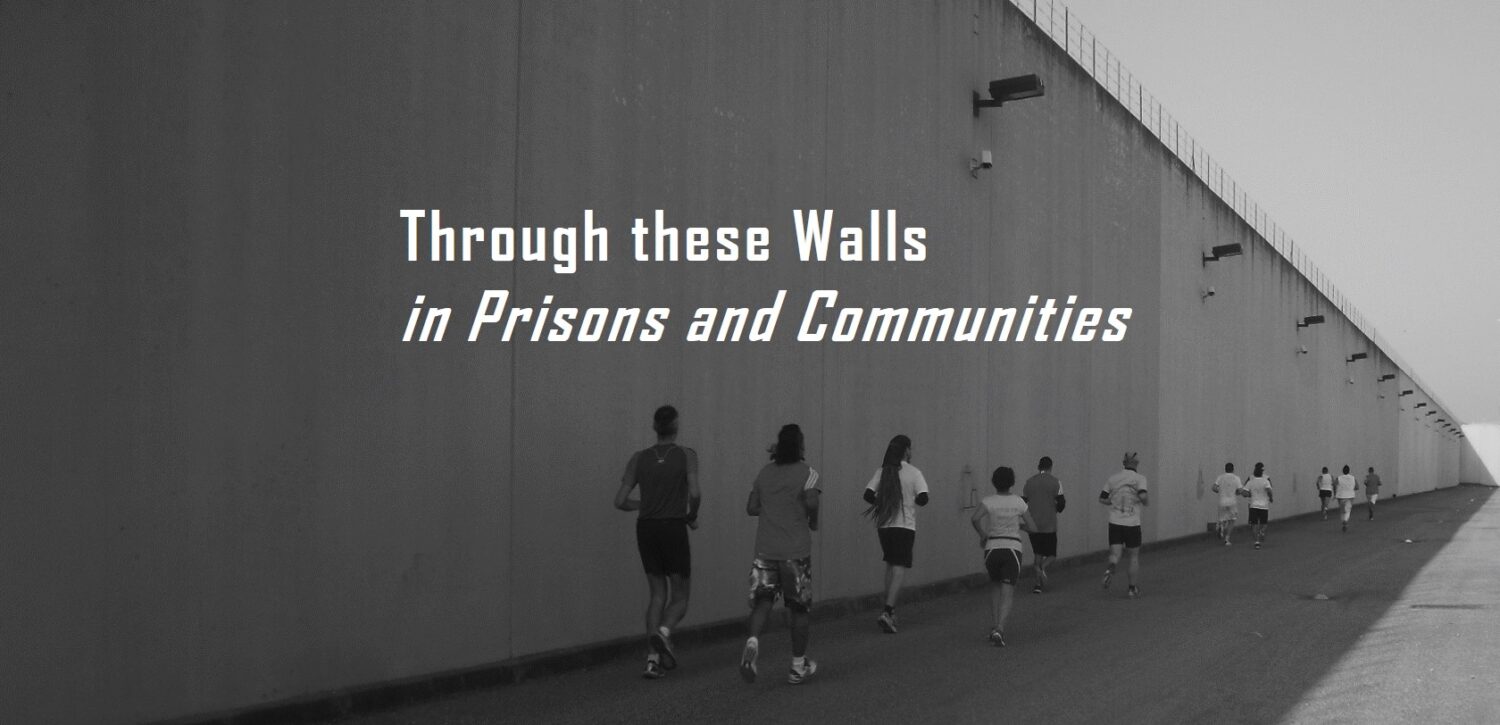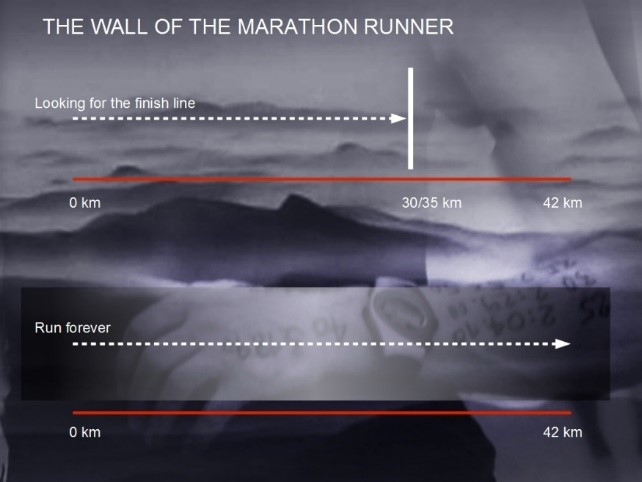Marathon and Feldenkrais
Marathon running
What gives me to come back to the marathon is the fact that I like the unknown! No matter how good I’m in shape, I never know what my body is gonna do physically and mentally that last five or six miles!
Dick Beardsley – American long-distance runner
Marathon running is a practice of the unknown. As many marathoners acknowledge, in a marathon you never know what you are going to do in the last few kilometres. It is precisely because of this uncertainty that they like the marathon.
In my understanding marathon running is taken not as a sport but rather as a philosophical practice. It is learning to run the wall of the marathoner. It is a path not just of physical training and endurance but towards self-awareness and transformation. Running a marathon without collapsing at the 35th kilometre means learning to run the race as if you would run forever. This implies overcoming competitiveness and living the same race with a different approach. The marathon is indeed paradoxical because it triggers the ambition to achieve a personal best, while at the same time putting a limit on this paradigm. Marathon running is the practice of this limit and therefore a path of self-transformation. To pass through the wall one has to live the race with the attitude of a finisher who focuses on the pleasure of running and of being with others. It is an exploration of unknown territories of being where the self goes through a process of reconfiguration, of objectives and intentions.
Listen to Runningstories#6 (min.29:30)
The wall of the marathon
Around the 35th km in a marathon, runners can hit a limit of endurance which they liken to a wall and collapse for mental or physical exhaustion unless they learn to run forever. The wall in fact tells the runner “if you want to arrive at the finishing line, you don’t have to think about the finishing line. You have to run as if you would run forever”. It is a paradoxical educational experience which opens a new perspective on the wall as a limit, no longer as a barrier to be crossed in a hoped-for transition from inside to outside, but as a threshold to be inhabited, leading to enhancement of self-worth and liberation of a different kind.
What is to run forever?
Run forever is indeed a paradox if seen from within the frame of a race. It is a questioning of its competitive paradigm from inside the practice and suggesting living the same race with a different approach. Participation in a race implies a mindset focused on reaching a destination and achieving a good result or even achieving a personal best. This approach triggers a sense of anxiety which is detrimental in a marathon and often makes the runner collapse at the wall. On the contrary, run forever suggests running a race not as a race (in the sense of reaching the finish line as fast as possible), with the attitude of a finisher who focuses on the pleasure of running and of being with others.
This has a deep impact on the inner self of the runner (posture) and on its life. It means learning to focus on the journey and not just on the destination, to move respecting your pace and rhythm and therefore to listen to yourself, to move side by side with others becoming friends rather than obsessively compete against them. It means not just stop thinking to the finish line but abandoning the need of reaching it.
Runforever is participating in the collective dream of a different way of being in the world.
Marathoners run this dream! Runforever suggests the marathon and long distance running to be an educational path for better and healthier human beings.
Feldenkrais
Feldenkrais ® is a somatic educational method based on movement and sensory awareness created by Moshè Feldenkrais (1904-1984) synthesized in the words “awareness through movement®”. Feldenkrais improves posture, balance and coordination and is beneficial to reduce the impact of chronic, degenerative or sudden-onset health conditions. Mental health in relation to recovery from addiction, symptoms of anxiety, mild to moderated depression and panic attacks can benefit from it. Feldenkrais aids rehabilitation for people dealing with injury and illness, and facilitates a shift to a more healthful/salutogenic orientation in life for self- management of health conditions.
Feldenkrais Official websites:
Feldenkrais – Paolo Maccagno:
A few selected Feldenkrais academic references:
- 2022 Berland R., Effects of the Feldenkrais Method as a Physiotherapy Tool: A Systematic Review and Meta-Analysis of Randomized Controlled Trials, International Journal of Environmental Research and Public Health
- 2016 Cliff S., Feldenkrais Method and health: Phenomenological perspectives, Feldenkrais Research Journal, volume 5
- 2016 Mattes, J., 2016. Attentional focus in motor learning, the Feldenkrais method, and mindful movement. Perceptual and Motor Skills, 123(1), pp. 258-276.
- 2015 Hiller S., Worley A., The Effectiveness of the Feldenkrais Method: A Systematic Review of the Evidence, Evidence-Based Complementary and Alternative Medicine
- 2015 Teixeira-Machado L., Feldenkrais Method-based Exercise Improves Quality of Life in Individuals With Parkinson’s Disease: A Controlled, Randomized Clinical Trial, Alternative Therapies, Vol. 21,1
- 2015 Kimmel M., Bodywork as systemic and inter-enactive competence: participatory process management in Feldenkrais® Method and Zen Shiatsu, Frontiers in Psychology, vol. 5
- 2005 Batson G., Effects of Feldenkrais Awareness Through Movement on Balance in Adults With Chronic Neurological Deficits Following Stroke: A Preliminary Study, Complementary Health Practice Review, Vol. 10 No. 3, October 2005 203-210
- 2004 Laumer U., Therapeutic Effects of the Feldenkrais Method (Awareness Through Movement) in Eating Disorders, Feldenkrais Research Journal, 1
- 2001 Buchanan P.A., The Feldenkrais Method: A Dynamic Approach to Changing Motor Behavior, Research Quarterly for Exercise and Sport, American Alliance for Health, Physical Education, Recreation and Dance Vol. 72, No. 4, pp. 315–323

